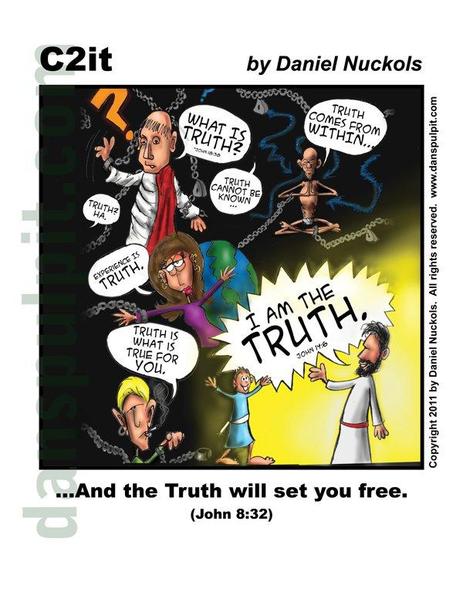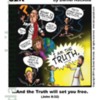Leaders of American History: A Legacy of Respect for God and the Bible
Past leaders of the United States often expressed sincere devotion to God and
Christian principles—in contrast to today's marginalization of biblical faith.
The framers of the U.S. Constitution believed that it involved miracles. The author of a book titled Miracle at Philadelphia: The Story of the Constitutional Convention May to September 1787 wrote: "Miracles do not occur at random, nor was it the author of the book who said there was a miracle at Philadelphia in the year 1787. George Washington said it, and James Madison.
They used the word in writing to their friends: Washington to Lafayette, Madison to Thomas Jefferson" (Catherine Drinker Bowen, 1986, p. xi).
These and many others among America's past leaders displayed humility before the Creator God of the Bible, realizing their helplessness apart from Him. Abraham Lincoln, one of the giants of American history who served as president during the Civil War of the 1860s, declared, "I do not care whether God is on my side; the important question is whether I am on God's side, for God is always right" (quoted by Erwin Lutzer, Is God On America's Side? The Surprising Answer and How It Affects Our Future, 2008, p. 72).
Yet times have changed. Many leaders today are often reticent to openly proclaim trust in God except in carefully nuanced rhetoric—or they are openly hostile to biblical values. This is part and parcel with the decline of the culture.
What is the United States like in the 21st century? One writer lamented a decade ago: "We laugh at God's law. Literally. Tune in virtually any TV or cable channel, and see how long you can listen until somebody mocks what God has said is good.
"The more pointed the mockery gets, the more raucous the laughter. Chastity, fidelity, and heterosexuality are targets of derision. God's name can still be mentioned on TV and in the movies, but it's far more likely to be heard (even on the news) in a blasphemous context than any other way" (Joel Belz, "Where Is God?" World, Oct. 5, 2002). And the situation has worsened since this was written.
If you took a survey, many would say that America is still a Christian nation. But to see things more clearly, we should compare the country's current attitudes and biblical underpinnings, or lack thereof, to those of the nation's leaders at its founding and in the centuries since.
Founders' outlook toward God and the Bible
As mentioned, the Founding Fathers of the United States believed that God was present at Philadelphia—and they saw His handiwork in the process of forming the country. During the Constitutional Convention, "at a particularly fierce period of debate in late June 1787, when agreement seemed distant, Benjamin Franklin spoke up. In a passionate, intelligent, and measured tone, Franklin reminded the Convention of what God had done for America thus far" (Jon Meacham, American Gospel: God, the Founding Fathers, and the Making of a Nation, 2006, p. 88).
Franklin stated: "In the beginning of the contest with Britain, when we were sensible of danger, we had daily prayers in this room for the divine protection! Our prayers, sir, were heard; and they were graciously answered. All of us who were engaged in the struggle must have observed frequent instances of a superintending providence in our favor" (quoted by Meacham, p. 89). He then called for regular prayers in the Congress.
A few years later in 1790, Franklin wrote to Yale University President Ezra Stiles, stating, "As to Jesus of Nazareth, my Opinion of whom you particularly desire, I think the System of Morals and his Religion, as he left them to us, is the best the World ever saw, or is likely to see" (quoted by William Federer, America's God and Country: Encyclopedia of Quotations, 2000, pp. 250-251).
The premier Founding Father was of course George Washington, known as the "Father of his country." He led American forces during the Revolution, headed the Constitutional Convention and served as the first president of the republic for two terms.
When Delaware Indian chiefs brought three youths to be trained in American schools in 1779, General Washington had an aide write these words to them: "Congress will look upon them as their own Children . . . You do well to wish to learn our arts and ways of life, and above all, the religion of Jesus Christ. These will make you a greater and happier people than you are. Congress will do everything they can to assist you in this wise intention" (quoted by Federer, p. 644).
On entering the presidency, "Washington took office by putting his hand on a Bible and declaring 'So help me God'" (Steven Waldman, Founding Faith: How Our Founding Fathers Forged a Radical New Approach to Religious Liberty, 2008, p. 160).
And near the end of his time in office, he wrote an open letter, known as his "Farewell Address," that warned the American people of the political dangers they must avoid if they are to remain true to their values. "George Washington argued that 'of all the dispositions and habits which lead to political prosperity, religion and morality are indispensable supports'" (Robert Putnam and David Campbell, American Grace: How Religion Divides and Unites Us, 2010, p. 443).
Another major figure in the founding of America, though not so well-known today, was Samuel Adams—second cousin of second U.S. president John Adams—who was eulogized as the "Father of the American Revolution." He eventually became the governor of Massachusetts.
Samuel Adams declared: "I conceive we cannot better express ourselves than by humbly supplicating the Supreme Ruler of the world . . . that the confusions that are and have been among the nations may be overruled by the promoting and speedily bringing in the holy and happy period when the kingdoms of our Lord and Saviour Jesus Christ may be everywhere established, and the people willingly bow to the sceptre of Him who is the Prince of Peace" (quoted by Federer, p. 24).
John Adams' son John Quincy Adams, the sixth president of the United States, later stated of the founding era, "From the day of the Declaration [of Independence] . . . they (the American people) were bound by the laws of God, which they all, and by the laws of The Gospel, which they nearly all, acknowledge as the rules of their conduct" (quoted by Federer, p. 18).
Leaders in the Pre–Civil War and Civil War Eras
Continued
http://www.ucg.org/leadership/...spect-god-and-bible/






